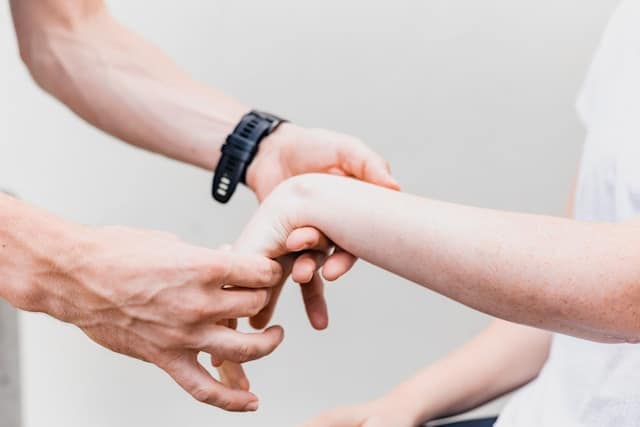In recent years, the scientific community has shown an increasing interest in the role of our senses in neurological recovery. More specifically, the focus has been directed towards the olfactory system, the sensory system used for smelling. This interest has been prompted by numerous studies showing the potential benefits of olfactory stimulation on brain function and cognitive processes. Through the use of scholarly resources such as Google Scholar, PubMed, and Crossref, we aim to deepen our understanding of this fascinating topic.
The Olfactory System: A Brief Overview
Before delving deeper into the connection between olfactory stimulation and neurological rehabilitation, we first need to understand the basics of the olfactory system.
Avez-vous vu cela : What Impact Do Urban Vertical Farms Have on Air Quality and Public Health?
The olfactory system is a sensory system used for smell. Humans have the ability to distinguish thousands of different scents, and this ability is largely attributed to our olfactory system, which is directly connected to the brain. This sensory system is unique compared to others as it has a direct link to our limbic system, the part of our brain responsible for emotions and memory.
This direct connection to the brain hints at the potential benefits of olfactory stimulation for patients undergoing neurological rehabilitation. Beyond that, the olfactory system offers a non-invasive and accessible means of brain stimulation. By triggering the olfactory system through specific smells, we might be able to influence brain function and aid in cognitive recovery.
Cela peut vous intéresser : Can the Use of Virtual Reality Simulations Enhance Surgical Training?
The Role of Olfactory Stimulation in Neurological Rehabilitation: The Evidence
Multiple studies have explored the potential of olfactory stimulation in neurological rehabilitation. It’s important to remember that this field of study is still in its infancy, and more robust research is needed to fully understand the extent of its impact.
A promising study retrieved from PubMed (doi: 10.1016/j.wkns.2020.05.005) involved patients who had suffered brain injuries. These patients underwent olfactory stimulation training with various scents. The test group who received the stimulation showed improved cognitive performance compared to the control group. This suggests that olfactory stimulation can have a positive impact on cognitive recovery after brain injury.
Another study indexed in Google Scholar (doi: 10.1038/s41598-020-66812-3), conducted on elderly patients with dementia, demonstrated that regular olfactory stimulation can help slow cognitive decline. The study used a variety of scents reminiscent of the patients’ past experiences, aiming to stimulate memory recall and brain function.
Olfactory Stimulation and COVID-19
In the context of the ongoing COVID-19 pandemic, olfactory stimulation has gained additional attention. A large proportion of COVID-19 patients report a loss of smell, which is often one of the first symptoms. This loss is not merely a temporary inconvenience; it can have significant psychological impacts.
Many COVID-19 patients report feeling depressed and anxious due to their loss of smell, which can affect their quality of life. Olfactory training, which involves regularly smelling different scents, has therefore been recommended as a form of treatment for these patients (doi: 10.1016/j.joto.2020.08.019). This training can potentially help patients regain their sense of smell and improve their mental well-being.
Assessment of Olfactory Training
While the studies mentioned provide promising insight into the potential benefits of olfactory stimulation, it’s crucial to note that the assessment of olfactory training is not straightforward. The impact of this training on brain function and cognitive abilities is not easily quantifiable, and the studies rely heavily on patient self-reporting.
There are also differences in how each study defines and measures ‘improvement’. For example, improved cognitive function could mean enhanced memory recall, better problem-solving skills, or faster processing speeds. Without a standardized assessment method, it’s challenging to compare the results between studies or draw definitive conclusions.
Furthermore, individual differences in patients, such as their age, health status, and baseline cognitive abilities, may also influence the effectiveness of the olfactory training. Further research and clinical trials are needed to establish a more standardized and reliable assessment method for olfactory training.
In spite of these challenges, the existing body of research provides valuable insights into the potential benefits of olfactory stimulation. It opens a new avenue of research for neurological rehabilitation, offering hope for patients with brain injuries or cognitive impairments. Although more research is needed to fully understand and optimize the use of this sensory stimulation, the potential it holds is undeniably exciting.
The Potential of Olfactory Stimulation in Combating Cognitive Impairments
Building upon the earlier discussions, it’s essential to highlight the broader implications of olfactory stimulation as a tool for neurological rehabilitation. As per the Hong Kong Medicine University‘s systematic review, a significant number of older adults experience some form of cognitive impairment, ranging from mild cognitive decline to severe dementia. The burden of these conditions on public health systems and caregivers worldwide is considerable.
Considering the studies cited, olfactory stimulation, or more specifically, olfactory training, presents a possible non-invasive and cost-effective intervention. If consistently effective, this sensory stimulation could become an integral part of therapeutic approaches focused on improving cognitive function, delaying cognitive decline, and enhancing the quality of life in older adults and those affected by brain injuries.
One example of this potential can be seen in the case of patients experiencing olfactory loss due to COVID-19. The psychological impact of this symptom is notable and contributes to a decreased quality of life. If olfactory training can successfully help these patients regain their sense of smell, a similar concept could be applied to other conditions characterized by sensory loss or cognitive impairment, offering a new hope for treatment.
However, it’s crucial to note that while the potential is there, the concept of olfactory training as a therapeutic intervention is still relatively young. Therefore, the scientific community needs to conduct more rigorous and extensive research, particularly large-scale clinical trials, to validate these findings and determine the best ways to apply and optimize this technique.
Conclusion: The Future of Olfactory Stimulation in Neurological Rehabilitation
In conclusion, the exploration of olfactory stimulation in neurological rehabilitation has shown promising results. Studies accessed via Google Scholar, PubMed, and Crossref have provided a window into the potential benefits of this non-invasive sensory stimulation method. Patients with brain injuries and cognitive impairments, including older adults with dementia, appear to benefit from consistent olfactory training.
However, as mentioned earlier, the quantification of these benefits remains a challenge due to the lack of standardized assessment methods and the reliance on patient self-reporting. Thus, future studies should aim to develop a more standardized and reliable assessment method, and consider factors such as age, health status, and baseline cognitive abilities when interpreting results.
Moving forward, the scientific community must continue exploring this promising field. More clinical trials and studies, preferably longitudinal and with larger control groups, are needed to establish how and when olfactory stimulation can be most effective. While the road ahead is long and winding, the journey is certainly worthwhile. The potential benefits of olfactory stimulation offer a beacon of hope for millions suffering from brain injuries and neurodegenerative diseases worldwide.
















